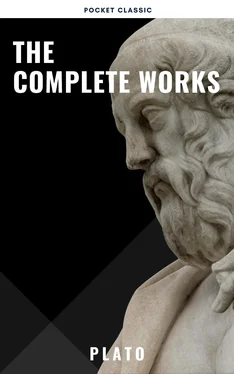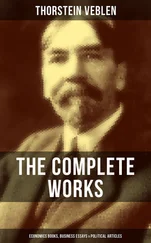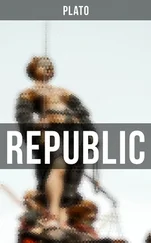LACHES: I think that you put the question to him very well, Socrates; and I would like him to say what is the nature of this knowledge or wisdom.
NICIAS: I mean to say, Laches, that courage is the knowledge of that which inspires fear or confidence in war, or in anything.
LACHES: How strangely he is talking, Socrates.
SOCRATES: Why do you say so, Laches?
LACHES: Why, surely courage is one thing, and wisdom another.
SOCRATES: That is just what Nicias denies.
LACHES: Yes, that is what he denies; but he is so silly.
SOCRATES: Suppose that we instruct instead of abusing him?
NICIAS: Laches does not want to instruct me, Socrates; but having been proved to be talking nonsense himself, he wants to prove that I have been doing the same.
LACHES: Very true, Nicias; and you are talking nonsense, as I shall endeavour to show. Let me ask you a question: Do not physicians know the dangers of disease? or do the courageous know them? or are the physicians the same as the courageous?
NICIAS: Not at all.
LACHES: No more than the husbandmen who know the dangers of husbandry, or than other craftsmen, who have a knowledge of that which inspires them with fear or confidence in their own arts, and yet they are not courageous a whit the more for that.
SOCRATES: What is Laches saying, Nicias? He appears to be saying something of importance.
NICIAS: Yes, he is saying something, but it is not true.
SOCRATES: How so?
NICIAS: Why, because he does not see that the physician’s knowledge only extends to the nature of health and disease: he can tell the sick man no more than this. Do you imagine, Laches, that the physician knows whether health or disease is the more terrible to a man? Had not many a man better never get up from a sick bed? I should like to know whether you think that life is always better than death. May not death often be the better of the two?
LACHES: Yes certainly so in my opinion.
NICIAS: And do you think that the same things are terrible to those who had better die, and to those who had better live?
LACHES: Certainly not.
NICIAS: And do you suppose that the physician or any other artist knows this, or any one indeed, except he who is skilled in the grounds of fear and hope? And him I call the courageous.
SOCRATES: Do you understand his meaning, Laches?
LACHES: Yes; I suppose that, in his way of speaking, the soothsayers are courageous. For who but one of them can know to whom to die or to live is better? And yet Nicias, would you allow that you are yourself a soothsayer, or are you neither a soothsayer nor courageous?
NICIAS: What! do you mean to say that the soothsayer ought to know the grounds of hope or fear?
LACHES: Indeed I do: who but he?
NICIAS: Much rather I should say he of whom I speak; for the soothsayer ought to know only the signs of things that are about to come to pass, whether death or disease, or loss of property, or victory, or defeat in war, or in any sort of contest; but to whom the suffering or not suffering of these things will be for the best, can no more be decided by the soothsayer than by one who is no soothsayer.
LACHES: I cannot understand what Nicias would be at, Socrates; for he represents the courageous man as neither a soothsayer, nor a physician, nor in any other character, unless he means to say that he is a god. My opinion is that he does not like honestly to confess that he is talking nonsense, but that he shuffles up and down in order to conceal the difficulty into which he has got himself. You and I, Socrates, might have practised a similar shuffle just now, if we had only wanted to avoid the appearance of inconsistency. And if we had been arguing in a court of law there might have been reason in so doing; but why should a man deck himself out with vain words at a meeting of friends such as this?
SOCRATES: I quite agree with you, Laches, that he should not. But perhaps Nicias is serious, and not merely talking for the sake of talking. Let us ask him just to explain what he means, and if he has reason on his side we will agree with him; if not, we will instruct him.
LACHES: Do you, Socrates, if you like, ask him: I think that I have asked enough.
SOCRATES: I do not see why I should not; and my question will do for both of us.
LACHES: Very good.
SOCRATES: Then tell me, Nicias, or rather tell us, for Laches and I are partners in the argument: Do you mean to affirm that courage is the knowledge of the grounds of hope and fear?
NICIAS: I do.
SOCRATES: And not every man has this knowledge; the physician and the soothsayer have it not; and they will not be courageous unless they acquire it—that is what you were saying?
NICIAS: I was.
SOCRATES: Then this is certainly not a thing which every pig would know, as the proverb says, and therefore he could not be courageous.
NICIAS: I think not.
SOCRATES: Clearly not, Nicias; not even such a big pig as the Crommyonian sow would be called by you courageous. And this I say not as a joke, but because I think that he who assents to your doctrine, that courage is the knowledge of the grounds of fear and hope, cannot allow that any wild beast is courageous, unless he admits that a lion, or a leopard, or perhaps a boar, or any other animal, has such a degree of wisdom that he knows things which but a few human beings ever know by reason of their difficulty. He who takes your view of courage must affirm that a lion, and a stag, and a bull, and a monkey, have equally little pretensions to courage.
LACHES: Capital, Socrates; by the gods, that is truly good. And I hope, Nicias, that you will tell us whether these animals, which we all admit to be courageous, are really wiser than mankind; or whether you will have the boldness, in the face of universal opinion, to deny their courage.
NICIAS: Why, Laches, I do not call animals or any other things which have no fear of dangers, because they are ignorant of them, courageous, but only fearless and senseless. Do you imagine that I should call little children courageous, which fear no dangers because they know none? There is a difference, to my way of thinking, between fearlessness and courage. I am of opinion that thoughtful courage is a quality possessed by very few, but that rashness and boldness, and fearlessness, which has no forethought, are very common qualities possessed by many men, many women, many children, many animals. And you, and men in general, call by the term ‘courageous’ actions which I call rash;—my courageous actions are wise actions.
LACHES: Behold, Socrates, how admirably, as he thinks, he dresses himself out in words, while seeking to deprive of the honour of courage those whom all the world acknowledges to be courageous.
NICIAS: Not so, Laches, but do not be alarmed; for I am quite willing to say of you and also of Lamachus, and of many other Athenians, that you are courageous and therefore wise.
LACHES: I could answer that; but I would not have you cast in my teeth that I am a haughty Aexonian.
SOCRATES: Do not answer him, Laches; I rather fancy that you are not aware of the source from which his wisdom is derived. He has got all this from my friend Damon, and Damon is always with Prodicus, who, of all the Sophists, is considered to be the best puller to pieces of words of this sort.
LACHES: Yes, Socrates; and the examination of such niceties is a much more suitable employment for a Sophist than for a great statesman whom the city chooses to preside over her.
SOCRATES: Yes, my sweet friend, but a great statesman is likely to have a great intelligence. And I think that the view which is implied in Nicias’ definition of courage is worthy of examination.
LACHES: Then examine for yourself, Socrates.
SOCRATES: That is what I am going to do, my dear friend. Do not, however, suppose I shall let you out of the partnership; for I shall expect you to apply your mind, and join with me in the consideration of the question.
Читать дальше












